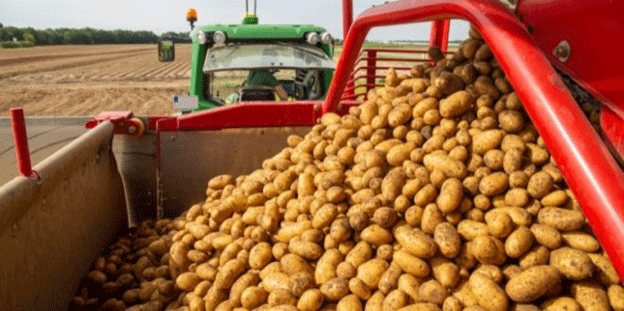The U.S. potato industry is ramping up its campaign to gain access to Japan’s market for fresh potatoes, a move that could significantly impact both domestic producers and the broader economy. Despite Japan being a major importer of processed potatoes from the U.S., fresh potato imports have yet to be approved, limiting the market potential for American growers.
Current Market Situation
Japan is a substantial importer of U.S. processed potatoes, including those used for chipping, with access granted around three years ago. However, fresh table stock potatoes from the U.S. remain excluded from the Japanese market. According to Kam Quarles, CEO of the National Potato Council (NPC), gaining access to Japan for fresh potatoes could increase U.S. exports by approximately 10% and potentially add $150 million to annual export revenues.
Economic Impact and Industry Support
Idaho, leading the nation in potato production, is particularly invested in this issue. The state produces about 6.35 million tons of potatoes annually, accounting for roughly one-third of the nation’s total potato supply. The Idaho Potato Commission estimates that fresh potato exports to Japan would provide significant economic benefits, reducing domestic supply pressures and boosting the state’s economic output.
In 2021, the U.S. potato sector had an estimated $101 billion impact on the national economy, with around 20% of American potatoes being exported. This export activity supports nearly 34,000 jobs and contributes about $4.8 billion to the economy. The potential addition of the Japanese market would further enhance these economic contributions.
Political and Diplomatic Efforts
A bipartisan group of 10 U.S. senators, including Idaho’s representatives, has recently advocated for continued pressure on Japan to permit fresh potato imports. The senators’ letter emphasizes that access to this market has been sought for nearly three decades with little progress due to Japan’s delays in technical discussions. They argue that there is no valid phytosanitary reason for Japan’s continued restrictions, citing the successful and safe export of fresh potatoes to other markets in the Indo-Pacific region.
Future Prospects
The ongoing negotiations between the USDA’s Animal and Plant Health Inspection Service (APHIS) and Japan’s Ministry of Agriculture, Forestry and Fisheries (MAFF) will continue with a bilateral meeting scheduled for September 16 in Idaho Falls. Industry leaders and government officials hope this meeting will advance discussions and pressure Japan to resolve the access issue.
Kam Quarles remains optimistic but stresses the need for persistent pressure. He argues that Japan’s reluctance to negotiate may be rooted in protectionism rather than legitimate concerns. The successful integration of fresh U.S. potatoes into the Japanese market could be a significant win for the industry and a major step forward in international trade relations.
The U.S. potato industry is poised for substantial growth if Japan opens its market to fresh potatoes. With the potential to increase exports by 10% and add $150 million to the economy, this move represents a critical opportunity for American growers, particularly those in Idaho. Continued diplomatic and political efforts will be crucial in overcoming Japan’s current trade barriers and achieving market access.







